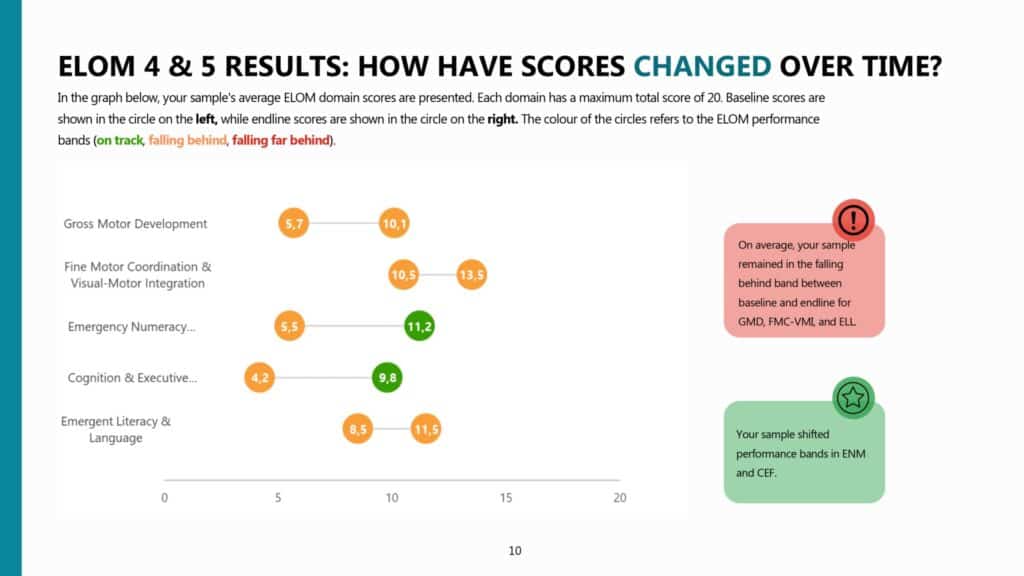Data utility is a cornerstone of our strategy. We continually strive to ensure that the data generated through the ELOM assessments are understood and appropriately used to drive change for children.
Following the inaugural ELOM Users Community of Practice meeting held in May 2023, we completely revised the reporting templates used to communicate ELOM 4&5 Assessment Tool findings based on insights from both behaviour change experts and users.
The following are new features in the ELOM 4&5 Assessment Reports:
- More context around the socio-economic status of the community where the early learning programme (ELP) is located.
- Multiple comparison groups including major national level assessments such as the Thrive by Five Index, as well as comparative information on similar programmes in the province where the assessment was done.
- Two separate relevant comparison groups are provided in cases where two different age groups have been assessed.
- Suggestions for actions informed by the ELOM assessment results. These may include programmatic changes and supporting early learning practitioners and principals. Suggestions are also provided to guide the immediate next steps following the ELOM study.
The images below are examples of the updated ELOM 4&5 report.
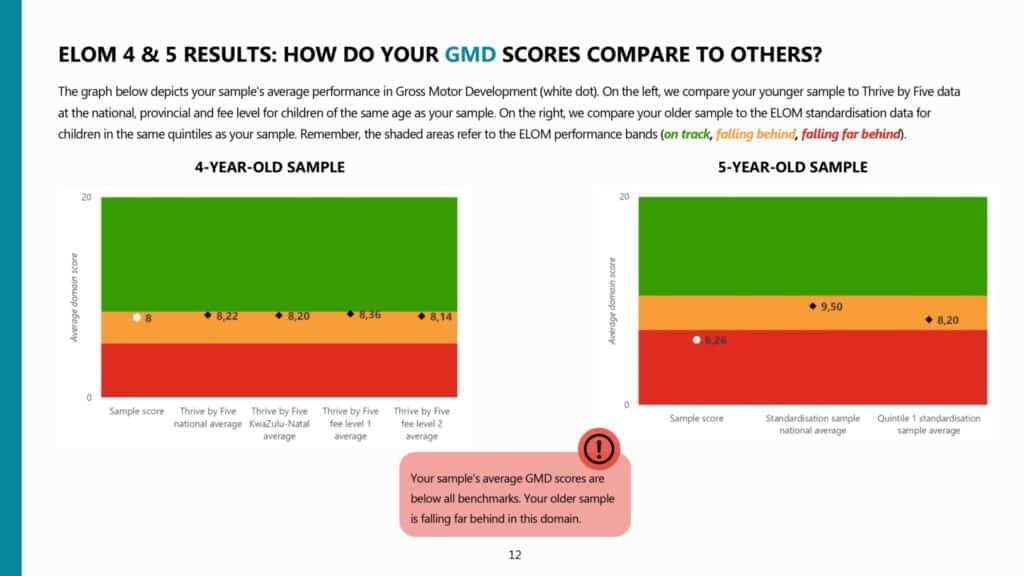
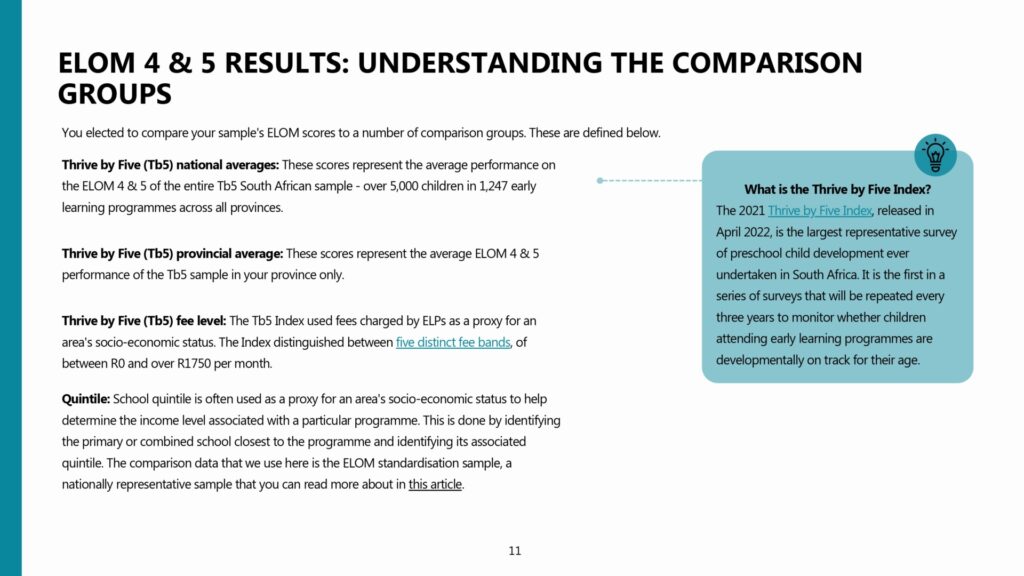
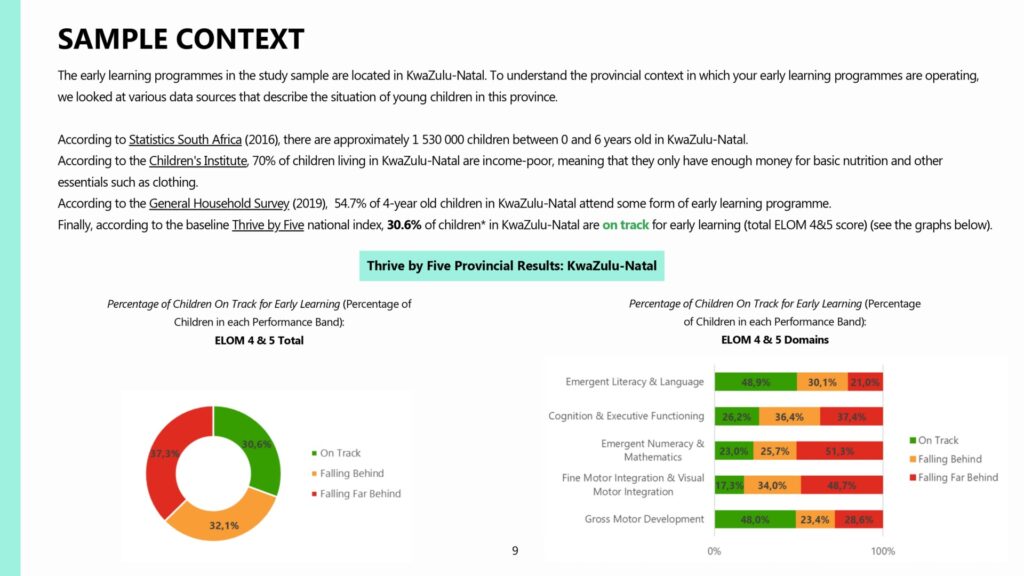


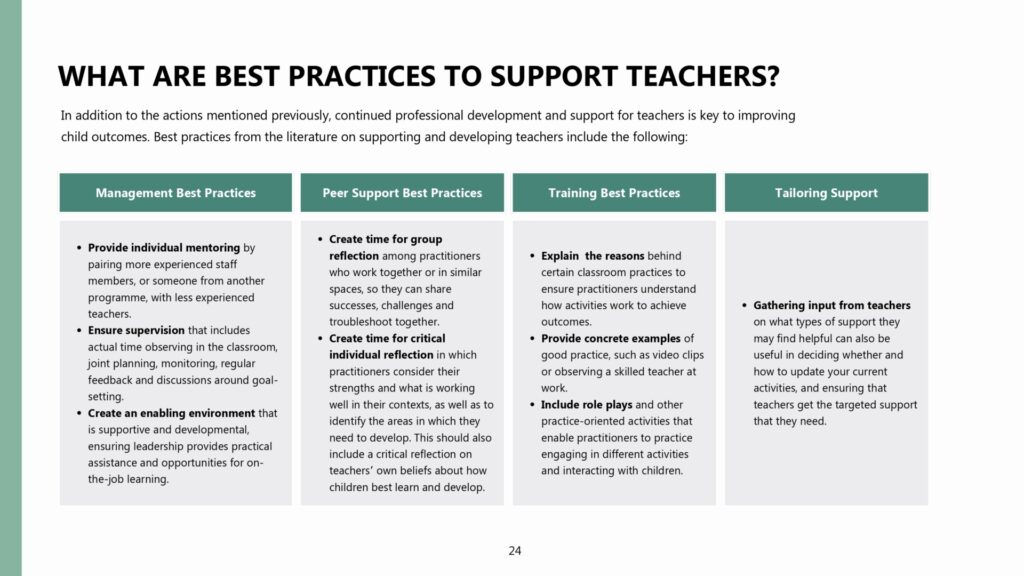
New ELOM 4&5 Assessment Pre-Post Report
As children grow and develop, their overall ELOM scores tend to improve naturally with age. However, it’s important to note that their position within the ELOM performance bands does not change solely due to their increasing age. Instead, enhanced learning opportunities, like participating in early learning programs and engaging with parents, other adults and peers, can help improve their overall ELOM scores.
A pre-post study commences with a baseline assessment before the programme year begins and concludes with a second assessment 8 to 10 months later into the programme year. The sample’s performance is compared to evaluate whether the programme has impacted developmental outcomes. More information on data analysis in the context of maturation is in our How To Guide: How to Understand and Use Maturation.
ELOM users can choose to receive their baseline data report at the start of the pre-post study, or to receive one final report which integrates the baseline and endline data. One pre-post ELOM user noted the importance of the baseline report, calling it “our biggest wake-up call”.
We recommend that you carry out a pre-post study once your programme implementation is mature, i.e. once you are satisfied that it is consistently being implemented with quality. A pre-post study cannot replace a full-scale evaluation, which collects other important data points, but it can provide basic insights into programme effectiveness based simply on child outcomes.
